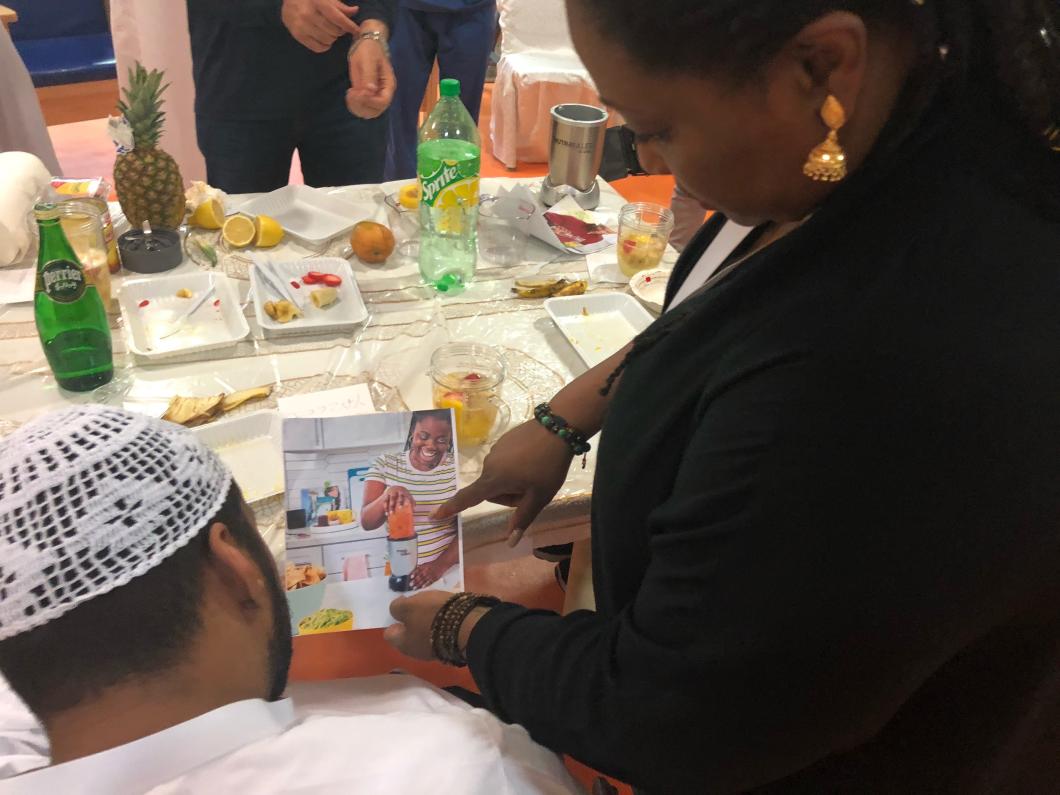Share
While the difference between “integration” and “inclusion” may be second nature to some people familiar with disability support, it is not a universally understood distinction.
This was clear to YAI staff conducting a mid-October training in Saudi Arabia. When lead trainer, Consuelo Senior, Assistant Director of YAI Knowledge, explained that “inclusion” means actively involving people with disabilities in decisions that affect their lives, she set the tone for the ambitious three-week engagement, centering all subsequent instruction on a human rights approach to services for people with intellectual and developmental disabilities (I/DD).
Human rights are essential to the goals of the UN Convention on the Rights of Persons with Disabilities (CRPD), the global standard for I/DD support. YAI, which has provided comprehensive support for children and adults with I/DD since 1957, is partnering with the Saudi government to transform their I/DD systems. Staff from the New York-based organization went on location in the capital, Riyadh, to run a “train the trainer” program designed to transition the country from a medical model toward person-centered support at facilities operated by the Ministry of Human Resources and Social Development and with oversight from the Authority for People with Disability.
“Saudi Arabia has an ambitious plan to meet the goals of the UN CRPD,” said Gary Milchman, YAI’s Senior Regional Director, who established relationships with providers throughout the Saudi Kingdom. “The Saudis have identified clear goals for Vision 2030 in which providing quality services to people with disabilities is a key component.”
The Saudis are not alone. Over the last half-century, greater emphasis has been placed on putting more control into the hands of those who receive support. On the heels of the 50th anniversary of Geraldo Rivera’s exposé of the Willowbrook State School, many nations are taking steps to transition people out of large institutions and incorporate human rights thinking into systems of care for people with I/DD.
But Saudi Arabia, which reports a disability prevalence greater than seven percent, seems to be on a fast-track. Working in tandem with the education consulting company Edrak, YAI devised a robust curriculum to jump-start the acquisition of new skills. Trainings were led by Senior, who guided 45 supervisors from every region of the country through theory and practice of the human rights framework with topics that included self-determination, informed decision-making, and partnering with family members.
“Whether in Saudi Arabia or Brooklyn, our person-centered approach remains central to quality support,” Senior said. “It was encouraging to see how easily the trainees adopted human rights language, which showed a shift in the lens through which they will provide support.”
Among the participants in the three-week program was Sara Alqatani, Training Supervisor for seven comprehensive centers in the Mecca region. Although Alqatani is a talented manager who knows how to monitor and execute implementation plans, she was surprised at the effect a few basic ideas could have on the ways in which people with disabilities are perceived within the Kingdom.
“Something as simple as the difference between sympathy and empathy or people’s participation in volunteer activities can have a significant impact on attitudes and beliefs,” she said.
To date, 181 countries have ratified the CRPD, including Saudi Arabia. Each country’s independent monitoring mechanisms examine everything from residential options to supported employment to community programming. Country reports are reviewed by the global Committee on the Rights of Persons with Disabilities and the Conference of States Parties, which offer detailed recommendations to countries on next steps in their CRPD implementation.

YAI’s training culminated in two days of hands-on exercises with people receiving services. Under Senior’s watchful eye, trainees conducted a group activity, putting the lessons they learned over the course of the training into practice. With tools as simple as a few pieces of fruit, a knife, and a portable blender, people with moderate and profound disabilities peeled and sliced their own mangoes and bananas, then blended them together. Senior stood back as trainees took turns explaining the process and supporting others, sharing colorful concoctions with everyone.
“Anyone can make a fruit smoothie,” Senior said. “Too often, you see staff doing the work for them instead of letting people act on their own. When I saw how comfortably our trainees held back and let people make their own decisions, I felt that we really started moving the needle on person-centered support.”

